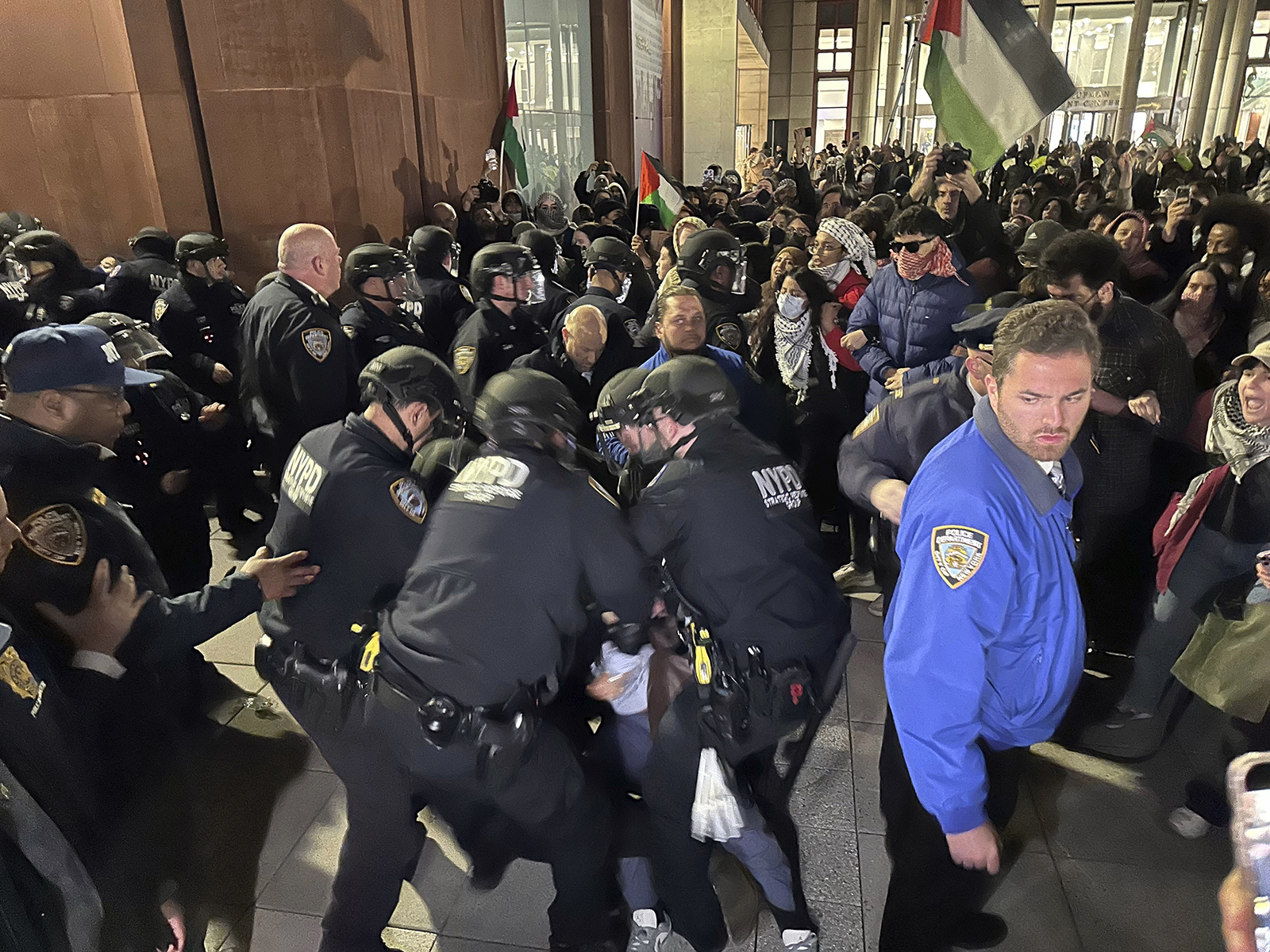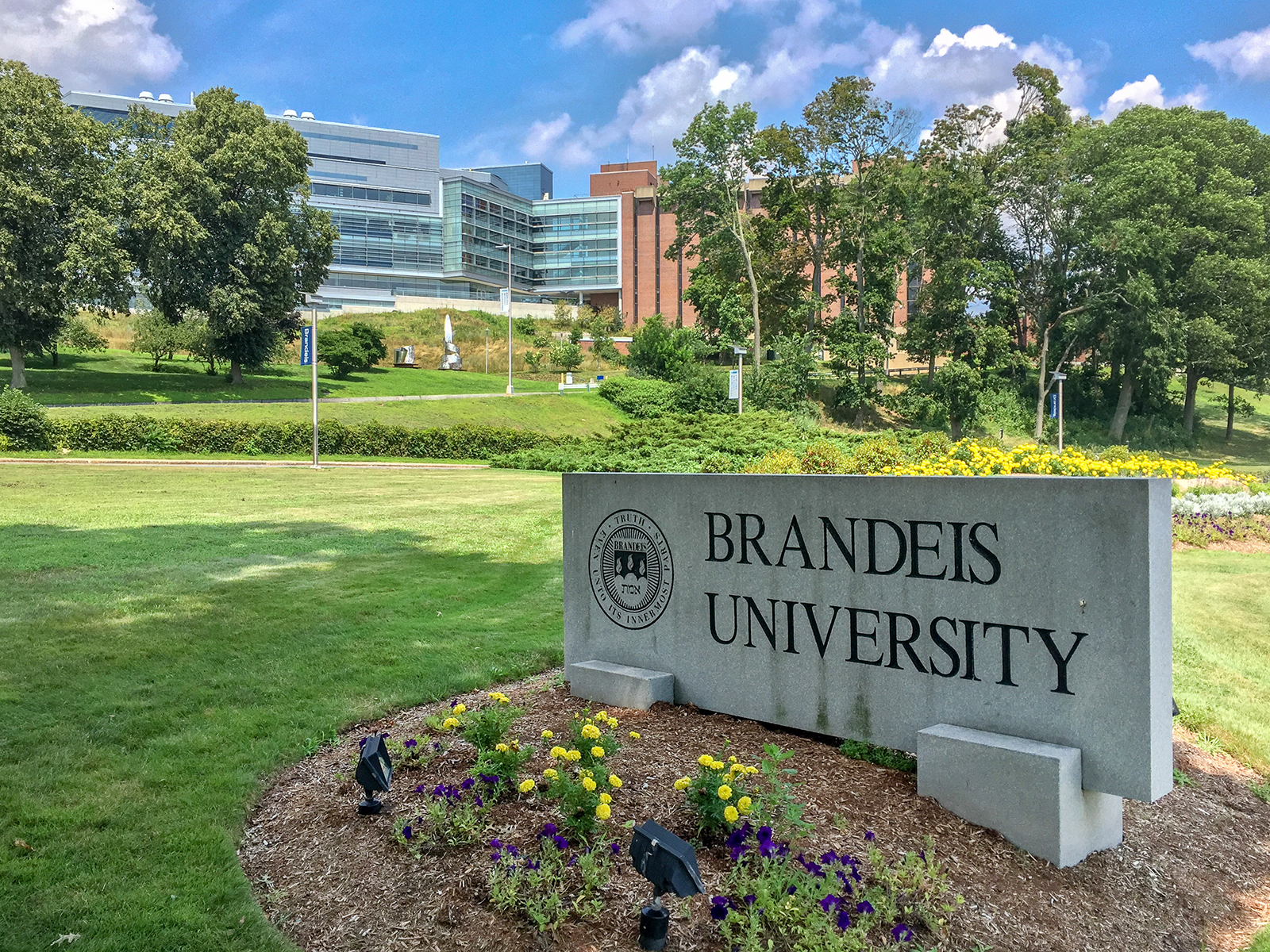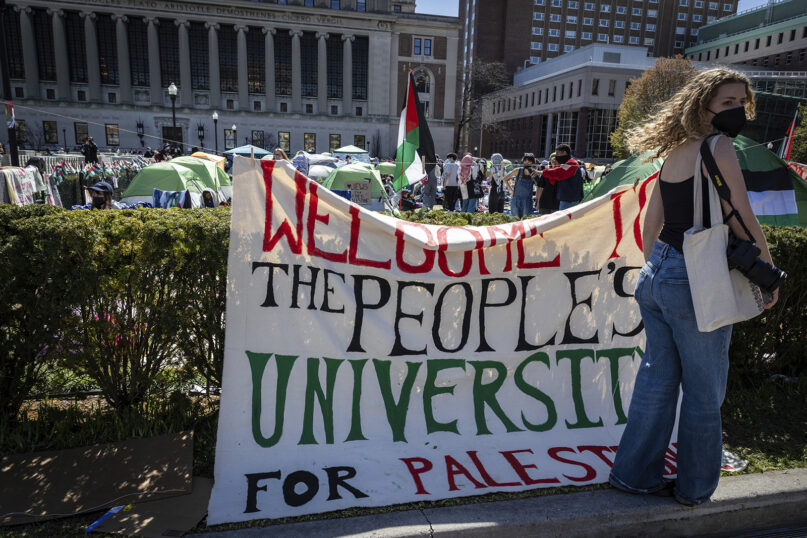(RNS) — As pro-Palestinian protests swamp universities around the country, from Columbia to MIT to UCLA, Brandeis University announced Monday (April 22) that it would be extending its deadline for transfer applications, specifically encouraging Jewish students feeling uncomfortable at their current universities to apply.
“Students elsewhere should know we welcome all — Jews and students from every background — who seek an excellent undergraduate education and an environment striving to be free of harassment and Jew-hatred to apply,” Brandeis President Ron Liebowitz said in a statement.
The message, released as Passover was about to start, came as Columbia University shut down its campus and moved classes online as protesters camped in the university’s quadrangle and led demonstrations against Israel’s war in Gaza and the university’s ties to Israeli institutions.
While student protesters have maintained that the encampment has been peaceful and free of antisemitism — noting that it held Shabbat dinners and even a Passover Seder for participating Jewish students — campus Jewish leaders at Columbia have reported incidents of harassment.
Outside of the campus, groups unaffiliated with student protests have been recorded shouting antisemitic and explicitly pro-Hamas slogans.
In a group text message, an Orthodox rabbi affiliated with Columbia’s chapter of Hillel, a Jewish campus organization, urged Jewish students leaving for Passover not to return to campus for their safety.

New York City Police Department officers arrest pro-Palestinian protesters outside a student-led encampment at New York University on April 22, 2024, in New York. The protest and encampment were set up to demand the university divest from weapons manufacturers and the Israeli government. (AP Photo/Noreen Nasir)
Last week, the New York Police Department entered the campus at the behest of Columbia’s president, Minouche Shafik, arresting more than 100 students and sparking more protests at schools around the country. Student protesters at New York University faced a similar police action.
In contrast, Brandeis, which early in the conflict banned its pro-Palestinian student group, has seen little unrest related to the Israel-Hamas war.
“We’ve been fortunate here, in terms of what the atmosphere has been like on campus for the majority of our students,” Liebowitz told Religion News Service. “And so we thought, wouldn’t it be a good idea to offer others the opportunity, who want a more peaceful atmosphere, a normal atmosphere, for them to continue their studies and also to live their co-curricular lives.”
Named for America’s first Jewish Supreme Court justice, Brandeis was founded in 1948 in response to antisemitism and quotas for Jews at American universities. But despite its history, Brandeis is a nondenominational and fully secular school, and today only 35% of its student body is Jewish.
Liebowitz also stressed to RNS that the extension wasn’t in response to any increase in transfer applications. “There wasn’t a need for this, it was just a response to a situation where we thought we could make a difference,” he noted. “Maybe nobody takes us up on our offer. But at least the opportunity was there … much like the institution offered in 1948.”

A sign marks the entrance of Brandeis University in Waltham, Massachusetts, on Aug. 7, 2018. (Photo by Kenneth C. Zirkel/Creative Commons)
In his statement, Liebowitz said, “Brandeis has been committed to protecting the safety of all its students, and, in the current atmosphere, we are proud of the supports we have in place to allow Jewish students to thrive.”
Brandeis made the controversial decision to ban its chapter of Students for Justice in Palestine, the largest pro-Palestinian student group in the U.S., in November, accusing the group of spreading antisemitic hate speech.
A month earlier, Florida Gov. Ron DeSantis had banned the group from his state’s public universities.
“Universities cannot stop hate speech, but they can stop paying for it,” Liebowitz said in an op-ed for The Boston Globe at the time. “Brandeis will ensure that groups that receive privileges through their affiliations with the university, including using its name, will lose their affiliations and privileges when they spew hate.”
He also noted that the school would actively explore closer relationships with Israeli institutions — the very same thing being protested at Columbia and schools around the country.
On Thursday, Liebowitz told RNS that he had recently returned from a trip to Israel to meet with his counterparts at universities there.
“I’m very confident in that I think people have to understand we’re not making agreements with the Netanyahu government,” Liebowitz said. “We’re not doing anything outside the purview of academic exchanges and collaboration; just because they’re Israeli shouldn’t disqualify academics from afar to engage with us. And so I plan to continue that pursuit.”





